How to Calculate Your ROI on Jupiter Rental Properties: A Comprehensive Guide
Introduction to ROI on Jupiter Rental Properties
When investing in rental properties, understanding your Return on Investment (ROI) is essential. ROI helps investors gauge how well their money is working for them. In real estate, ROI reflects the profitability of the property based on rental income and associated costs.
What is ROI?
ROI is a financial metric that evaluates the profitability of an investment, typically expressed as a percentage. In the case of rental properties, ROI compares the annual rental income to the total investment in the property. Knowing the ROI helps investors assess whether their property is a good financial choice.
The basic formula for calculating ROI is:
ROI = (Net Income / Total Investment) × 100
Where:
- Net Income = Total Rental Income – Total Expenses
- Total Investment = Purchase Price + Additional Costs (e.g., maintenance, taxes)
Step-by-Step Calculation of ROI
To calculate ROI, we must break down the calculation into individual components: rental income, expenses, and the total investment in the property.
1. Calculate Total Rental Income
The first step in calculating ROI is determining the total rental income generated by the property. Rental income is typically the monthly rent multiplied by the number of months the property is occupied.
Example:
- Monthly Rent: $2,500
- Annual Rental Income: $2,500 × 12 = $30,000
The total annual rental income for the property is $30,000.
2. Determine the Total Expenses
Expenses are costs that reduce the net income from the property. These can include mortgage payments, property taxes, insurance, maintenance, repairs, and property management fees.
Common expenses:
- Mortgage Payments: Monthly payments towards the loan.
- Property Taxes: Taxes assessed by local government.
- Insurance: Cost of insuring the property.
- Maintenance and Repairs: Routine upkeep and unexpected repairs.
- Property Management Fees: Typically 8-12% of rental income.
Example of Expenses:
- Property Taxes: $3,000 annually
- Insurance: $1,200 annually
- Maintenance: $2,000 annually
- Property Management Fees: 10% of rental income ($3,000)
Total Expenses = $3,000 + $1,200 + $2,000 + $3,000 = $9,200
3. Calculate Net Income
Net income is the income left after all expenses are subtracted from the rental income. In this case:
Net Income = Total Rental Income – Total Expenses
Net Income = $30,000 – $9,200 = $20,800
4. Determine Total Investment
Total investment includes not only the purchase price of the property but also any additional costs associated with acquiring and maintaining it. This could include the down payment, closing costs, and any renovations or improvements made to the property.
Example of Total Investment:
- Purchase Price: $250,000
- Closing Costs: $5,000
- Renovations: $10,000
Total Investment = Purchase Price + Closing Costs + Renovations
Total Investment = $250,000 + $5,000 + $10,000 = $265,000
Final ROI Calculation
Now that we have all the necessary information, we can calculate the ROI:
ROI = (Net Income / Total Investment) × 100
ROI = ($20,800 / $265,000) × 100 = 7.85%
This means the ROI for this Jupiter rental property is 7.85%. This indicates that the property is generating a solid return relative to the investment made.
Why is ROI Important?
ROI provides investors with an objective way to assess the profitability of a property. A higher ROI typically indicates that the property is generating good rental income and appreciating in value. However, it’s essential to keep in mind that ROI is not static; it can change due to market fluctuations, repairs, or increased property taxes.
Understanding ROI allows you to:
- Make informed investment decisions
- Optimize your property’s performance
- Compare different rental properties
Next Steps: Assessing ROI with Comparable Properties
Once you have calculated your ROI, it’s important to compare it with similar properties in the Jupiter area. Evaluating the ROI of your property relative to others helps you understand whether your investment is performing well in the local market. This comparison should factor in the property’s size, location, age, and condition.
Common Challenges in Calculating ROI
While calculating ROI seems straightforward, there are several challenges that may impact the accuracy of your calculations:
- Unexpected Costs: Repairs or higher-than-expected maintenance costs can decrease your net income.
- Market Fluctuations: Rental rates may fluctuate due to changes in the local market, affecting your ROI.
- Vacancy Periods: Periods when the property is vacant can reduce rental income, lowering ROI.
To avoid these pitfalls, it’s important to be conservative in your estimates and include a contingency for unexpected expenses or vacancies.

Get a Free Rental Analysis
Want to know how much your home will rent for? We’ll send you a free rental report!
Advanced Considerations for Maximizing ROI on Jupiter Rental Properties
While calculating ROI is a crucial step in evaluating a rental property, several additional factors can influence your property’s overall performance. These factors include market trends, property improvements, financing options, and tax considerations. In this section, we will dive deeper into these aspects, providing advanced strategies for maximizing ROI.
Market Trends and Their Impact on ROI
Understanding local market trends in Jupiter is essential for accurate ROI calculations. The performance of rental properties is often influenced by the overall market conditions, including demand, rental rates, and property values. In Jupiter, factors such as proximity to beaches, golf courses, or local amenities like shopping centers and schools can significantly affect rental demand.
Key Market Trends to Monitor:
- Rental Demand: If rental demand in Jupiter is high, you may be able to charge higher rent, improving your ROI. Conversely, a downturn in demand could force you to reduce rent or face longer vacancy periods.
- Property Appreciation: Jupiter properties, especially those near popular tourist spots, can experience significant value appreciation. A property that appreciates over time can increase the ROI by enhancing the total return on investment when you decide to sell.
- Supply and Demand: The balance between the number of rental properties available and the demand from renters will directly affect rental income. A low supply of rental units can increase rents, thus improving ROI.
Monitoring these trends will help you make informed decisions about raising rents, upgrading the property, or even deciding whether to sell and reinvest elsewhere.
Financing Options and Their Effect on ROI
How you finance the purchase of your Jupiter rental property can have a major impact on your ROI. The financing structure—whether you use cash or leverage a mortgage—affects your monthly cash flow, long-term profitability, and ROI.
1. All-Cash Purchase:
An all-cash purchase means you own the property outright without any mortgage. This eliminates monthly mortgage payments, making it easier to retain a higher percentage of rental income. The downside is that it ties up a significant amount of capital in the property.
Impact on ROI:
- Pros: Higher ROI due to fewer expenses (no mortgage interest payments).
- Cons: Lower return on investment relative to cash invested (since the cash invested is large).
2. Leveraged Purchase (Using a Mortgage):
A leveraged purchase involves borrowing funds (usually from a bank) to purchase the property. The advantage of leveraging is that it allows you to control a larger asset while only putting down a portion of the property’s value.
Impact on ROI:
- Pros: Higher ROI potential because you’re using less of your own money to generate rental income. The rental income may cover the mortgage payment, and any excess income contributes to your profit.
- Cons: The ROI can be reduced due to mortgage payments and interest costs.
Mortgage Impact on ROI Calculation:
If you use a mortgage, remember to include the mortgage payments as an expense when calculating your net income.
Example: If your monthly mortgage payment is $1,200, that will reduce your rental income for the month. Let’s assume you charge $2,500 in rent. After subtracting the mortgage payment, your net income will be $2,500 – $1,200 = $1,300.
Property Improvements to Increase ROI
Making strategic improvements to your Jupiter rental property can enhance its appeal to renters, allowing you to increase rent and, ultimately, improve ROI. However, it’s essential to carefully assess which improvements will provide the best return.
High-ROI Renovations:
- Kitchen and Bathroom Upgrades: Renovating these high-traffic areas can increase the property’s rental value significantly. Modern kitchens with updated appliances or a refreshed bathroom can attract tenants willing to pay higher rent.
- Curb Appeal Enhancements: First impressions matter. A well-maintained exterior, including landscaping and exterior paint, can increase the property’s value and attract quality tenants.
- Energy-Efficiency Upgrades: Installing energy-efficient appliances, windows, and insulation can reduce utility costs for tenants, making the property more appealing.
Before proceeding with renovations, make sure to estimate the cost and expected increase in rent. Perform a cost-benefit analysis to ensure that the improvements will provide a sufficient increase in rental income to justify the investment.
Example of ROI-Boosting Renovations:
If you spend $10,000 on renovations and expect an increase in rent of $300 per month, the annual increase in rental income is $300 × 12 = $3,600.
The ROI on the renovation can be calculated as:
ROI = (Annual Rent Increase / Renovation Cost) × 100
ROI = ($3,600 / $10,000) × 100 = 36%
This means your renovation provides a 36% return, a solid ROI.
Tax Considerations and Benefits
Taxes play an important role in calculating ROI on rental properties, as they directly impact your net income. Property owners may be eligible for various tax deductions that reduce taxable income, thus improving ROI.
Tax Deductions for Rental Properties:
- Mortgage Interest: You can deduct the interest portion of your mortgage payment.
- Property Taxes: Property taxes are deductible.
- Depreciation: The IRS allows you to depreciate the value of the property (excluding land) over 27.5 years, which can offset rental income and reduce your tax liability.
- Maintenance and Repairs: Expenses for maintaining and repairing the property can also be deducted.
Example of Tax Impact on ROI:
If your rental income is $30,000, and you can deduct $5,000 in property taxes, $3,000 in mortgage interest, and $2,000 in maintenance expenses, your taxable rental income is reduced to $20,000. This results in a higher net income after taxes, effectively improving your ROI.
Strategies for Dealing with Vacancy Costs
Vacancy costs are a common challenge for rental property owners. A vacant unit generates no rental income, which directly impacts your ROI. It’s essential to minimize vacancy periods by maintaining competitive rents and keeping tenants satisfied.
Tips to Reduce Vacancy Costs:
- Attractive Leasing Terms: Offering flexible lease terms, like shorter leases or incentives (e.g., a month of free rent), can attract renters faster.
- Effective Marketing: Using online platforms and local advertising can increase the visibility of your rental property and reduce vacancy periods.
- Retain Existing Tenants: Keep your tenants happy by maintaining the property, responding quickly to maintenance requests, and offering reasonable rent increases.
Reducing vacancy costs can lead to a more stable rental income, which improves overall ROI.

Overcoming Common Challenges in Calculating and Maximizing ROI on Jupiter Rental Properties
Dealing with Property Vacancies
One of the most significant challenges faced by rental property owners is the possibility of vacancies. When a rental property sits empty, you lose out on rental income, which can have a substantial impact on your ROI. Managing vacancies efficiently is crucial to maintaining a positive cash flow and maximizing your returns.
Minimizing Vacancy Rates
To minimize vacancies, it’s essential to maintain good relationships with your tenants and keep your properties in excellent condition. Here are a few strategies to help minimize vacancy rates:
Tenant Retention Strategies: The longer your tenants stay in your property, the lower your vacancy rate will be. Retaining tenants is often more cost-effective than finding new ones, so providing exceptional service, responding promptly to maintenance requests, and making your tenants feel valued can encourage them to stay longer.
Competitive Rent Pricing: If you experience frequent vacancies, consider adjusting your rental pricing to better match the market. Research local rental listings to ensure your price is competitive without underselling your property. Offering incentives such as discounted rent for the first month or signing bonuses can also attract new tenants.
Marketing Your Property Effectively: When a vacancy occurs, marketing your property quickly and effectively is key. Use online platforms such as Zillow, Apartments.com, and social media to reach a broader audience. High-quality photos and detailed descriptions of the property’s features can help generate interest quickly, reducing the length of time the property sits empty.
Seasonal Considerations: In Jupiter, rental demand may fluctuate depending on the season. Understanding peak rental seasons and aligning your lease terms with these periods can help ensure consistent occupancy. For example, consider offering longer leases during peak demand seasons to secure tenants for extended periods.
By actively addressing vacancies and ensuring that your property stays occupied, you can maintain consistent cash flow and improve your overall ROI.
Managing Maintenance and Repair Costs
Maintenance and repair costs are an inevitable part of property ownership, but managing these expenses is essential for maximizing your ROI. Unexpected repairs can quickly eat into your profits, so it’s important to have a strategy in place to minimize these costs while keeping your property in good condition.
Preventative Maintenance
A proactive approach to maintenance can significantly reduce long-term repair costs. Schedule regular inspections and preventative maintenance tasks to catch small issues before they become costly problems. For example:
- HVAC System: Ensure that your HVAC system is cleaned and serviced regularly to prevent breakdowns.
- Roof Inspections: Conduct annual roof inspections to identify potential leaks or damages that could lead to larger problems.
- Plumbing: Regularly check for leaks and perform minor plumbing repairs to avoid more significant water damage down the line.
By staying ahead of necessary repairs, you can avoid larger, more expensive fixes and reduce the impact on your ROI.
Budgeting for Repairs and Maintenance
Set aside a maintenance reserve fund to cover unexpected repairs. A common recommendation is to set aside 1% of the property’s value each year for maintenance costs. For example, if your property is worth $500,000, you should aim to save $5,000 per year for repairs and upkeep. This approach ensures that you have the necessary funds available when an issue arises, preventing sudden expenses from cutting into your ROI.
Navigating Property Taxes and Insurance Costs
Property taxes and insurance costs are essential considerations in the ROI calculation. These expenses can vary based on the property’s location, value, and other factors, but it’s important to anticipate these costs when evaluating the profitability of a rental property.
Understanding Property Tax Assessments
In Jupiter, property taxes can vary significantly depending on the property’s value, location, and zoning. Jupiter’s tax rates are relatively typical for Palm Beach County, but it’s important to review local tax rates and ensure that you account for them in your ROI calculations. Contact your local tax assessor to get a clear understanding of your property’s tax liabilities and plan accordingly.
Consider appealing property tax assessments if you believe they are too high. In some cases, local governments may adjust property tax rates upon request, which can lead to savings and improve your overall ROI.
Insurance Costs
Rental property insurance is another critical expense that impacts your ROI. Ensure you shop around for the best coverage at competitive rates. Work with an insurance agent who understands the local market and can recommend a policy that adequately protects your property from natural disasters, theft, and other risks.
When calculating your ROI, remember to include annual insurance premiums as part of your operating expenses. Comparing different insurance policies and understanding the coverage limits can help you make an informed decision that balances cost and protection.
Understanding and Mitigating Legal Risks
Owning rental property comes with legal responsibilities that can affect your ROI. For example, issues related to tenant rights, eviction procedures, and fair housing laws can lead to costly legal battles if not properly managed. By understanding the laws governing rental properties in Jupiter, you can avoid legal risks that can negatively impact your bottom line.
Eviction Process and Legal Fees
Evicting a tenant can be time-consuming and costly, with legal fees, court costs, and potential loss of rent. To minimize this risk, ensure you thoroughly vet tenants before signing a lease. Background checks, credit reports, and rental history can help identify potential red flags that may indicate future problems.
In addition, consider using clear and comprehensive lease agreements that outline the expectations for both parties. These agreements should address issues such as late rent payments, damage to property, and behavior that could lead to eviction. By establishing clear guidelines upfront, you reduce the likelihood of disputes and legal challenges later on.
Fair Housing Compliance
It’s essential to comply with the Fair Housing Act and other local regulations related to discrimination. Failure to adhere to these laws can result in fines, lawsuits, and damage to your reputation. Educate yourself about the laws governing rental properties in Jupiter and ensure that your tenant selection process is fair and non-discriminatory.
Strategic Property Upgrades for Long-Term ROI Growth
While basic property maintenance is essential, strategic upgrades can also play a crucial role in boosting your ROI. Property improvements that enhance the property’s appeal, increase its value, and attract higher-paying tenants can offer long-term benefits.
High-Return Renovations
Some property upgrades provide a higher return on investment than others. These include:
- Kitchen and Bathroom Remodels: Upgrades to the kitchen and bathrooms often provide the highest return on investment. Modern appliances, energy-efficient fixtures, and updated countertops can significantly increase the appeal and rental value of your property.
- Curb Appeal: First impressions matter, so enhancing your property’s curb appeal through landscaping, exterior painting, and minor repairs can increase interest from prospective tenants.
- Energy Efficiency: Implementing energy-efficient upgrades, such as installing new windows, insulation, or LED lighting, can reduce utility costs and attract environmentally-conscious tenants.
When planning upgrades, focus on renovations that provide the best return relative to their cost. Carefully evaluate the local market to ensure that the upgrades align with the preferences of your target tenants.
Maximizing ROI on Jupiter Rental Properties
Successfully calculating and maximizing ROI on Jupiter rental properties requires a multi-faceted approach that goes beyond simple rent collection. By understanding and managing key factors such as financing, property appreciation, maintenance costs, tenant retention, and legal risks, you can significantly improve your ROI and build long-term wealth through real estate investment.
Implementing strategic property upgrades, effectively managing vacancies, and leveraging tax benefits are essential for achieving the highest returns. By combining these insights with a thorough understanding of the local real estate market and a proactive management strategy, you can navigate challenges and ensure the profitability of your Jupiter rental properties. Whether you’re a seasoned investor or new to the market, applying these principles will help you maximize your success in the competitive real estate market.
Suggested Relevant Links:
Investment Property Cashflow Calculator
Tax Deductions Every Palm Beach Gardens Landlord Should Know
The Role of Property Management in Maximizing ROI for Palm Beach County Landlords
How Property Managers Maximize ROI for Investors in West Palm Beach
Maximizing ROI: The Financial Impact of Professional Tenant Screening
Frequently Asked Questions (FAQ) on Calculating ROI for Jupiter Rental Properties
1. What is ROI and why is it important for rental properties?
ROI, or Return on Investment, is a measure used to assess the profitability of an investment. In the context of rental properties, it helps you evaluate the financial returns you can expect from your property relative to the amount you’ve invested. A higher ROI indicates that your investment is performing well.
2. How do I calculate the ROI on my rental property?
To calculate ROI for your rental property, you can use the following formula:
ROI = (Net Income / Total Investment) × 100
Where:
- Net Income = Rental Income – Operating Expenses – Mortgage Payments (if applicable)
- Total Investment = Purchase Price + Closing Costs + Renovation Costs + Other Acquisition Costs
3. What is the difference between cash-on-cash return and ROI?
Cash-on-cash return focuses on the actual cash invested and the income generated, whereas ROI includes all costs and income sources over the entire life of the investment.
Cash-on-Cash Return Formula:
Cash-on-Cash Return = (Annual Cash Flow / Total Cash Invested) × 100
4. How does financing affect my ROI calculation?
If you use financing (e.g., a mortgage) to purchase your property, you’ll need to factor in mortgage payments when calculating ROI. This reduces your net income, which in turn affects the ROI.
To adjust for financing, calculate your mortgage payment and subtract it from your monthly rental income before determining net income.
Net Income (with financing) = Rental Income – Operating Expenses – Mortgage Payments
5. What should I include in my operating expenses?
Operating expenses are costs necessary to maintain and run your property. These typically include:
- Property management fees
- Maintenance and repairs
- Insurance
- Property taxes
- Utilities (if paid by the landlord)
These costs must be deducted from your rental income when calculating ROI.
6. What are some strategies to improve my ROI?
Improving your ROI can be achieved through:
- Increasing rent after property upgrades
- Reducing vacancy rates
- Improving property management
- Minimizing operating expenses through tax deductions
- Financing options that leverage your capital efficiently
7. Can I include tax benefits in my ROI calculation?
Yes, tax benefits can positively impact your ROI. You can deduct various property-related expenses, including mortgage interest, repairs, and depreciation. These deductions reduce your taxable income, increasing your effective ROI.
Tax-Adjusted ROI Formula:
Tax-Adjusted ROI = (Net Income + Tax Savings / Total Investment) × 100
8. How do I account for appreciation in ROI?
Property appreciation contributes to ROI when you sell the property for more than its purchase price. To factor in appreciation, consider it when calculating total return on investment at the time of sale.
Total Return on Investment = (Final Sale Price – Initial Investment) / Initial Investment × 100
This takes into account both rental income and property value increase over time.



